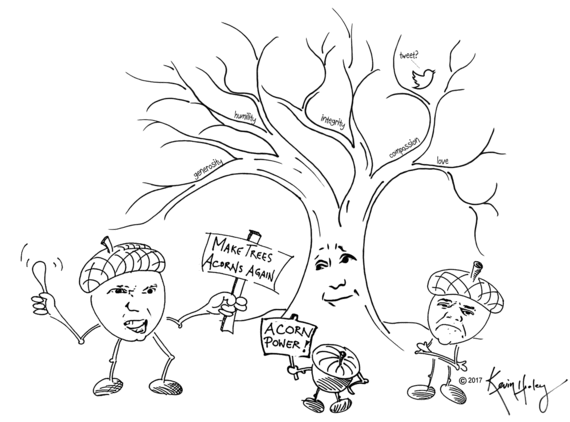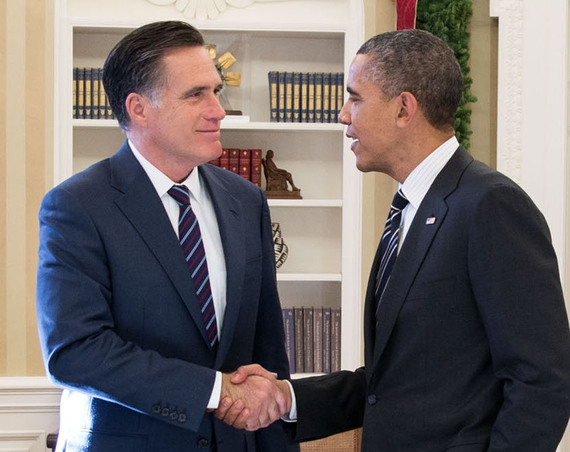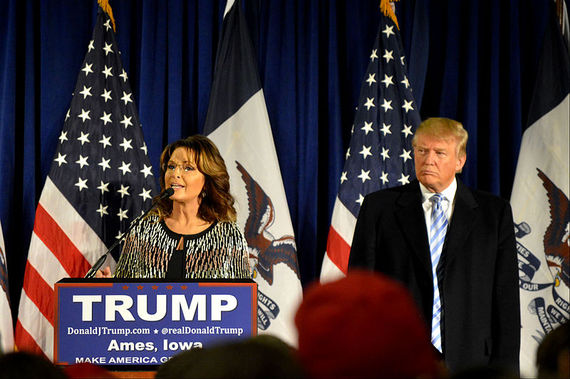A Joint Statement from Atheist Democrat, Evangelical Republican
This essay is a collaboration between Kevin Healey, Assistant Professor of Communication at University of New Hampshire; and Robert H. Woods, Jr., Professor of Communication at Spring Arbor University. One of us is a registered Independent who leans strongly Democratic, while the other is a registered Republican. One of us is religiously unaffiliated—an atheist by any standard definition—while the other is a committed evangelical Christian. Yet we agree: Trump is a false prophet. We encourage readers to share this essay in a spirit of forging new alliances across differences. The views expressed in this essay belong to the authors and do not represent the views of their home institutions.

(Download a printable version of this cartoon here.)
"The tongue of the wise adorns knowledge, but the mouth of the fool gushes folly."
- Proverbs 15:1-2
The Fall of Wisdom
In early January, Americans were shocked and dismayed to learn that a giant sequoia, the 137-year-old Pioneer Cabin Tree, had fallen. Had it happened any other time, the downfall of such a creature might not be so symbolic.
This giant's demise happened to coincide with a particular moment of crisis in American politics.
Just days before the swearing-in of the next President—a man whose election appears to have been buttressed by foreign interference, and who is known to lash out at the slightest provocation—the shattering crash of a wise, old sequoia crystalizes an anxiety many Americans now share:
Is the long, but steady growth toward an authentic American democracy—that upward thrust of history toward a more perfect Union—is that hope, too, about to collapse?
We suggest that great sequoia's fall represents the collapse of a certain virtue. Slowly but steadily, our understanding of what it means to live fully and authentically has been trivialized by Twitter-fueled sloganeering and party-loyal posturing.
We've become a nation of proud and stubborn acorns.
The Ethics of Authenticity
On the Wednesday before Christmas, NPR's Morning Edition aired two interviews which get to the heart of America's disagreement over a man who, according to friends and foes alike, is nothing if not "authentic."
In the first exchange, former House Speaker Newt Gingrich told NPR's Rachel Martin, "If Trump remains honest and seems like a person who's authentic, he's going to go a long way. If, under the pressure of the city, he starts dissembling and saying things that aren't true, he'll decay much as Obama did."
In the second conversation, NPR's Steve Inskeep asked outgoing President Barack Obama about the letters he's received since the election.
The ones that "mean the most to me," Obama said, are those from long-time "skeptics" who concede that, overall, he "did a pretty good job." "If you haven't persuaded them on the issues," he mused, "at least maybe they've recognized that I've tried to be true to the meaning of this office, that I've held it in reverence."
Gingrich and Obama are a case study in contrasts, and their comments raise a crucial question about what we mean by authenticity: Should we be true to ourselves, or true to something much bigger? Can we do both?
The former Speaker, Gingrich, praises Trump for the reason that excites rally-goers: He speaks his mind. Political correctness be damned! He's refreshingly unlike phony politicians who say one thing while thinking, and doing, another.
Surely a good number of Trump critics spit their morning joe across the breakfast table on hearing Gingrich declare his hope that Trump "remains honest." That's a strange expectation to place upon a man accused of being dodgy about his taxes, at best, and inconsistent on a host of other issues.
But if it seems Gingrich is speaking out of both sides of his mouth, that's because he defines authenticity in terms of Trump's simple willingness to be transgressive.
Trump breaks the rules, so to speak, whether it comes to political correctness or long-held conventions regarding candidates' tax returns. Phony rules simply prop up the same phony Washington bureaucracy which, according to Gingrich, has become "too arrogant and imperial."
Phony Washington needs to be disrupted. Trump surely fits the bill, no?
But in his willingness to offend, his disregard for convention, in his refusal to see beyond the boundaries of his own ego, Trump exemplifies a small-minded version of authenticity: self-obsessed, individualistic, unrooted in a sense of common purpose.
As the philosopher Charles Taylor rightly notes, this shallow brand of authenticity is an acute malady of the post-modern era. And while it's not entirely without merit, it's lop-sided to say the least.
There is another dimension of authenticity we seem to have forgotten.
Being "True" to Something Bigger
Maybe Gingrich has a point about Obama. Doesn't the outgoing President carry the mantle of a mushy-mouthed political correctness?
One does hear in Obama's interview the very thing his critics decry. His responses are measured and thoughtful. Unlike Trump, he pauses to think before speaking. Is he too busy being "PC" to say what he really thinks?
Not necessarily.
Thomas Jefferson once remarked, "When angry, count ten, before you speak; if very angry, a hundred."
Jefferson knew that authenticity is not just a matter of jettisoning the mental filters that keep offensive comments from slipping out. To insist that we treat others with dignity is not "political correctness," Obama rightly argues, but simply "good manners, sound values."
Conservatives, too, are sensitive about certain issues. After wishing others "Happy Holidays," Obama recalls, his critics insisted that "I was trying to kill Christmas."
Can't we meet somewhere in the middle? Can't we have "legitimate political debates," as Obama suggests, while still "thinking about how words affect other people"?
Yes, we can—because authenticity is not just about what's inside your head. It's also about being "true" to something beyond your ego's cravings. It's about being true to ideas that transcend your ego altogether, and to which we are all committed.
Seated in the White House for one of his last interviews as President, Obama talked about being "true to the meaning of this office," and holding it "in reverence."
It's worth noting that this a dimension of authenticity Republicans have embraced as well. When Vice President Biden told an audience that Republicans would "put y'all back in chains," then-candidate Mitt Romney decried the Democrats' reelection campaign as "demeaning to the office of the White House."
Setting aside the specifics of the debate, notice the point of agreement: Authenticity, for both Obama and Romney, is an aspiration toward virtue. It's about what we have yet to become.
Shortly before he was assassinated, Martin Luther King, Jr. told a gathering of Philadelphia high school students, "in your life's blueprint, [there] must be a commitment to the eternal principles of beauty, love, and justice."
The office of the Presidency is well-architected physically and philosophically. It calls upon its occupants to be, to become, more than their personal views.
This is the point where bipartisanship begins.
Authenticity in this sense is a collective virtue, not a solitary one. An authentic person needs the help of others and, importantly, the support of those institutions crafted with noble ideals in mind.
The Office of the Presidency is one such institution, along with the Constitutional principles that enable—and restrain—its power.
Bipartisanship Gets Trumped
The irony here is that, compared to Trump's willful defiance of convention, Obama sounds like a traditionalist, if not a conservative.
A few decades ago, countercultural progressives championed transgressive authenticity. Mario Savio famously told his Berkeley compatriots to throw themselves on the gears of the Washington machinery. It was traditionalist conservatives who guarded threatened institutions.
We seem to have stepped through the looking-glass as the outgoing Democrat raises what sounds like a traditionalist plea: In your rush to destroy business-as-usual in Washington, please preserve what is still Right and Good about American democracy.
Preserving basic standards of mutual respect and decency should be a point of bipartisan agreement. But as Obama's one-time rival Mitt Romney argued in scathing tones, Republican leaders seem all too willing to embrace—or conveniently ignore—their nominee's brand of "trickle-down racism."
With Trump's ascendance, Romney openly worried his party had lost its moral bearings. Tears in his eyes, he told a group of business partners, "I love what this country is built upon and its values, and seeing this is breaking my heart."
Where were conservatives to turn? Early on, the Democratic primaries seemed equally driven by concerns about authenticity, and similarly open to an outsider. Bernie Sanders captured the attention of voters across the political spectrum.
One self-identified conservative told The Atlantic, "I'm not 100 percent behind his platform but I like him as a person. For me it really comes down to authenticity."
In fact, Bernie Sanders defied the liberal-conservative binary by garnering support from many life-long Republicans.
Progressives and conservatives shared a dislike of Clinton for her apparent lack of forthrightness and her establishment pedigree. Andy Crouch, executive editor of Christianity Today, argued that Clinton embodied the "path to power" typical of technocratic elites, which he said is "rooted in a rigorous control of one's image and calculated disregard for norms that restrain less powerful actors."
Like many pro-Sanders conservatives, progressives loved the Vermont Senator's take-no-prisoners condemnation of Wall Street's greed. Sanders appeared to be the one candidate who embodied both personal authenticity and commitment to a transcendent common Good. That was the key to his bipartisan appeal.
As the primaries ended, though, the conservative strongman and the liberal technocrat prevailed.
In the end, the strongman won.
We Need Both
In the relative lack of enthusiasm that left- and right-leaning voters both held toward their nominees, there is an opening for a bipartisan return-to-values moment. To the extent that Democrats and Republicans agree on the importance of being "true" to the Office they hold, and not to their selfish interests, we may still have reason to hope for a politics beyond the rancor and antipathy of the current scene.
Let's be clear. In criticizing President-elect Trump's brand of authenticity, we're not arguing against conservatism per se. Many dyed-in-the-wool conservatives have questioned whether the businessman is deserving of the name in the first place.
We're arguing instead against a pattern in which disruption for the sake of disruption threatens to undermine the delicate balance between traditionalism and progressivism that democracy requires.
In our classes on media and ethics, we use a couple of simple analogies to underscore important of this balance.
The first is one we all learn in elementary-school: the difference between centripetal and centrifugal force.
Centripetal force is the "inward" force, so to speak. It holds things together, like how gravity holds together the solar system's planets. In Latin, centripetal means "to seek the center." This is what conservatism does.
Centrifugal force is the "outward" force. It pushes things apart. In Latin, centrifugal means "to flee the center." This is what liberalism does.
Here's the key: both are necessary. If not for gravity, the planets would wander into space. There would be no seasons, no sunlight, no life. On the other hand, the whole thing would collapse into a flaming mass if not for (excuse the pun) planetary revolution.
In American culture, disruption has become a value unto itself—up to a point. We like candidates who disrupt politics-as-usual in Washington. We praise dot-com start-ups for disrupting, well, everything.
Legislative and technological disruption often go hand-in-hand. It's worth recalling that, as Speaker, Newt Gingrich spear-headed the deregulatory 1996 Telecom Act. It set off an unprecedented wave of industry consolidation that laid the groundwork for today's Silicon Valley elite.
Is it any wonder that the first Twitter President is a no-holds-barred, free-market capitalist?
It seems that the only thing worthy of preservation is a conspicuously strident form of market fundamentalism.
Where is the common Good?
As writer Maria Popova suggests, the "fetishism of disruption" has its down-sides. One day, while chatting with Andrew Sullivan, the conservative commentator told her "You know, culture needs stewardship, not disruption."
Her response summarizes my view precisely: "We need both, always, to move forward."
Proud Acorns
The second analogy is more philosophical.
Imagine this exercise from the students' perspective. Somewhere in the first few weeks of the semester, the professor draws a tree on the board and below it, a multitude of tiny acorns. The professor turns and asks you, the student: What is the authentic nature of an acorn? What does it look like for an acorn to live authentically?
What would you say? Typically, students are quiet for a while. But eventually, someone observes that, as long as it gets sunlight and good soil, an acorn will become a tree.
The authentic nature of the acorn, in other words, is not an acorn at all. It's something altogether different.
Unfortunately, we are steeped in a notion of authenticity that is strident and stubborn.
Now imagine that the professor asks you: What if those acorns simply refuse to become trees? What if one of them fashions himself a Leader of Acorns, convincing the others they should be proud of their acorn nature?
At this point in the exercise, many students knit their eyebrows in consternation. That would be crazy!
Indeed. But that's essentially the direction we see American politics moving.
Consider Trump's case. Besides "authentic," the other word people use to describe him is "narcissistic." This is not a contradiction, if we understand Trump's brand of authenticity as the "flat," type that Taylor laments, and which Gingrich celebrates.
Trump refuses to see beyond the boundaries of his own ego.
Moreover, Twitter enables him to indulge the proverbial devil on his shoulder—handing that little guy a megaphone in the wee hours of the night.
As journalist Kiku Adatto presciently noted in his book Picture Perfect, authenticity in the era of mass-media often means little more than becoming "the master of your own artificiality." Today, "fake authenticity" becomes attractive, even desirable, as throngs of would-be celebrities clamor for adulation and notoriety.
Saving Evangelicals (and Liberals) from Trump-ism
But Trump's case is worse than that: Intentionally or not, his populist campaign tapped directly into a strident white identity politics which, too often, hides behind a pretense of religious faith.
According to a Pew Research poll, an overwhelming majority of white evangelicals feel that American culture has gone downhill since the 1950s. Meanwhile whites as a whole, and an even larger majority of African-Americans, say it has gotten better.
What's going on here? Washington Post religion reporter Sarah Bailey concludes that many Trump supporters are driven by "nostalgia for white Christian America."
Trump's call to "Make America Great Again" clearly echoes Sarah Palin's call to "take America back again." It was Palin's brand of populist evangelicalism that "paved the way" for Trump, as NPR's Don Gonyea suggests. Palin, too, was lauded for being "authentic"—a "rogue" outsider to the Washington establishment.
But whose evangelicalism is this?
Liberals have been the loudest voices to condemn Palin and Trump for pandering to the fears and prejudices of white voters. In these critics' view, praising Trump because he "says what we're thinking," as his rally-attendees contend, is to say in essence, "he's one of us."
That's tribalism: the acorn proudly refusing to become a tree.
But the common liberal view, that evangelicalism is irredeemably racist, overlooks a long history of evangelicals' passionate defense of social and economic justice. It's worth noting that most African-American churches are both evangelical and theologically conservative.
In fact, a range of conservative evangelicals have condemned the troubling prejudice that seems to have driven the Trump campaign. Kathryn Freeman, a Director at the Christian Life Commission in Austin, Texas, told Christianity Today that it was "disorienting to see so many evangelicals— including the ones who say they care about racial justice and esteem women—choose a candidate whose message and language was so demeaning and in some ways downright hateful to those groups."
Karen Swallow Prior, a Professor of English at Liberty University, argued that Trump's victory showed that "the echo chamber won," and called on her fellow believers to "love our neighbors" regardless of race, ethnicity, or class.
This post-election moment, as divisions between pro- and anti-Trump evangelicals threaten to fracture the community, is not a wise time for liberal critics to paint evangelicalism in unflatteringly broad strokes. Doing so reinforces a vicious cycle that reduces secular liberals and conservative evangelicals alike to warring factions of proud—and tiny—acorns.
Instead, Trump's nomination and election could, and should, be an opportunity to forge new alliances across old boundaries.
Fascism is not Conservatism
Unfortunately, what we have seen recently are various strands of self-obsession. As scholar Arun Saldanha argues in his book Psychedelic White, there is a "violent micro-fascist tendency" in all oppositional movements, including typically left-leaning ones like unionism and youth subculture. It's a threat that can come from all quarters.
Digital media often amplifies this form of tribalism.
Today, it happens to take the form of Trump's incoming administration. Trump's candidacy and election has energized a white nationalist movement whose leaders are doubling down on stubborn tribalism. Rather than moving beyond tribal allegiances, they have become further entrenched within them.
Our point is not to attack conservatism. In fact, as Saldhana notes, "fascism is not conservative, but revolutionary." It flourishes in the context of intense desire and fear. But in its self-obsession, it sows the seeds of its own demise.
An exemplary moment occurred in late November 2016 when the white nationalist National Policy Institute (NPI) held a conference in Washington, DC titled "Become Who We Are." It's a group that the conservative National Review described as "thugs" who thrive on the "politics of resentment."
Despite such loud disavowals from mainstream conservatives, NPI head Richard Spencer told NPR that his organization could serve as the "intellectual vanguard" that would "complete Trump." Reporter Jessica Taylor described the conference as an effort to mobilize "a return to the white origins of the country and protecting the white race."
The NPI's conference title, "Become Who We Are" draws from a line in Friedrich Nietzsche's Thus Spake Zarathustra, where the protagonist recalls having counseled himself to "Become what you are!"
Similar themes echo in the work of Martin Heidegger, who lectured extensively on Nietzsche and offered a vision of authentic living steeped in the writings of Søren Kierkegaard.
As Rector of Freiburg University, Heidegger was also a Nazi.
No wonder that David Harsanyi, senior editor at The Federalist, warned against conflating conservatism with Trump, and Trump with Richard Spencer. To do so raises the profile of extremists, and undermines conservative efforts to critique Trump on the grounds of, well, conservatism.
Trumpeting False Prophesy
Trump has disavowed his white nationalist supporters, if half-heartedly. But even if we assume that he does not share their racist ideology, one thing is clear: In his brazen rejection of political correctness, he has opened the door to all manner of vile and tribalist rhetoric.
Capitalizing on American voters' longing to break through Washington phoniness, Trump has made any shocking pronouncement, any offensive outburst, seem somehow prophetic.
This is not an over-statement. In fact, many evangelical Christians have sincerely praised Trump as a prophet. James Robison, an evangelical author and television broadcaster, proclaimed of Trump, "I sense that he is being captured by the heart of our Father."
When Trump attended a Sunday service of the International Church of Las Vegas, associate pastor Denise Goulet prayed over the businessman saying, "The Lord is saying I'm your father and I have prepared you for such a time as this."
There is an argument to be made here. In the Hebrew scriptures, the prophet's outcries are a form of "shock therapy" intended to jolt the masses out of complacency.
The prophet Ezekiel, in his own brand of street theater, shocks the citizens of Israel by rubbing animal excrement on his hands in the middle of the street—to show them what they have become.
Isaiah speaks to the hypocrisy of empty ritual, counseling the Kingdom of Judah that their sacrifices are meaningless without efforts to protect society's helpless.
Jeremiah preaches first in a loincloth and then in a wooden collar to show, in part, how God would ruin the pride of Judah.
Need we mention as well that, in the New Testament, Jesus stops the execution of a prostitute and runs the money-changers out of the Temple?
Indeed, the prophet is often shocking and disruptive. It should be surprising to no one that the label has been handed to Donald Trump. Replace radio with Twitter, and Trump is clearly the Howard Stern shock-jock of the political world. The prophet's spirit of non-acceptance is fueled by anguish over what he perceives as unjust patterns in a society. Trump is clearly fueled by what he deems injustice, from his suggestion that China is "raping our country," to his claims of a "rigged election."
But in the age of shock-jocks and Twitter-fueled political campaigns, false prophets are easy to come by.
In the Jewish and Christian traditions, the prophet was not driven by animosity toward his community, or condescension toward foreigners and enemies of Israel, but by a deep sense of compassion and concern for humanity's plight.
In the book Prophetically Incorrect, Robert H. Woods, Jr. (co-author of this essay) and Paul Patton offer a helpful set of guideposts. If you're not sure whether that loud voice in the room is authentically prophetic, or simply loud, consider the following checklist:
- The prophetic voice never regards shock value as an end in itself. Shock therapy is not just a crude instrument for headline-grabbing self-expression. It is an instrument serving the greater end of alleviating human brokenness.
- Prophetic critique avoids unethical humor. Intent matters. A prophetic voice might wield sarcasm to edify, but never to wound. Prophetic shock therapy yields a golden mean between naiveté and cynicism.
- The prophetic voice knows when, and how, to shock its audience. Evangelical preacher Tony Campolo is a master in this regard. Once, after describing how thousands of children die each day from starvation and disease, he shocked his mainly-Christian audience by telling them, "you don't give a shit!" Pausing as the audience gasped, he drove home his point: "What's worse than that is that you're more upset with the fact that I said 'shit' than that thirty-five thousand children died last night. And that's what's wrong with your Christianity."
- The prophetic voice is accountable to his or her broader community. An authentic prophetic voice is not a free-wheeling bombast. Instead, she is passionately intertwined with the people and cares deeply about their well-being.
By these standards, Trump is the quintessential false prophet.
Many conservative evangelicals agree. In a statement in Christianity Today, executive editor Andy Crouch urges his fellow evangelicals to "speak truth to Trump" by denouncing his "blatant immorality." Crouch's scathing critique highlights how Trump violates the four principles described above. He says of Trump:
"He has given no evidence of humility or dependence on others, let alone on God his Maker and Judge. He wantonly celebrates strongmen and takes every opportunity to humiliate and demean the vulnerable. He shows no curiosity or capacity to learn. He is, in short, the very embodiment of what the Bible calls a fool."
Behind the authentic prophet's demand for justice, peace, and charity there is a call for unity. Through this heartfelt vision, the prophetic voice avoids advocating the superiority of one tribal agenda over another, aiming instead to serve the broader society as a whole.
A Forest of Grand, Humble Trees
If nothing else, the 2016 primaries highlighted a bipartisan yearning for an authentic, prophetic voice. Instead, both parties remain trapped in their hardened shells.
Is there yet a true prophet among us?
Some continue to look to Bernie Sanders for inspiration. Richard Sugarman, an Orthodox Jew and a long-time friend, praised the Vermont Senator for his commitment to social justice and his "prophetic sensibility."
Indeed, the gray-haired Senator punctuated his speeches with quotes from the Hebrew Bible and, in one viral moment, was joined at the podium by a small bird.
"I think there may be some symbolism here," the Senator remarked as the crowd erupted in cheers.
But Sanders would be the first to reject he label of prophet. All along, he's insisted his work is not about him.
While the Office of the Presidency calls on politicians to live up to some set of ideals beyond their own egos, the most important role, as Justice Louis Brandeis once suggested, may be that of public citizen.
In a chapter from our book, Prophetic Critique and Popular Media, professor Robert Jensen argues that when traditional leadership fails, "it is tempting to want to turn to a prophet." That, he says, "would be a mistake." He goes on:
"This is a moment that cries out not for a prophet but for prophets. It is time to recognize that we all must strive to be prophets now. It is time for each of us to take responsibility for speaking in the prophetic voice."
To fulfill this responsibility, we need to revisit our understanding of what it means to live an authentic life, and our understanding of what constitutes authentic democratic politics.
It must not be a destructive vision. Authenticity is not cruel honesty, or boastful pride. It's not a strongman.
An authentic politics requires solidarity, community, and relationship.
Writing in Journey to the Common Good, Old Testament scholar Walter Brueggemann decribes how the collective movement from anxiety, fear, and scarcity towards a spirit of "neighborhood" is "the key journey that Jews must make, that Christians must make, and that all humans must make in order to be maximally human." It is a journey that requires "steadfast love," and—most importantly—it is one that "must be taken again and again."
When an acorn lets go of pride, it becomes what it truly is—something far grander, and more deeply rooted, altogether. The seedling for yet another Pioneer, another grand sequoia, may now be resting on some fertile soil, if not sprouting from its protective shell.
Do we have the wherewithal to nurture it? Will we, too, become so humble and wise?
About the Authors
Kevin Healey is an Assistant Professor of Media Studies at the University of New Hampshire. Though registered as an Independent, he leans heavily Democratic. He is part of the growing number of religiously unaffiliated Americans, and qualifies as an atheist by most conventional definitions. His essays appear in Salon, Huffington Post, Religion Dispatches, The Revealer, and numerous academic journals and books. He is co-editor, with Robert H. Woods, Jr., of the book Prophetic Critique and Popular Media (2013).
Robert H. Woods, Jr. is Professor of Communication at Spring Arbor University in Michigan. Robert is a registered Republican and a devout evangelical Christian. He holds a Ph.D. in communication from Regent University, Virginia, and is licensed to practice law in the Commonwealth of Virginia. He recently served as the president of the Religious Communication Association (2009-2010). He is the author, co-author, and editor of numerous articles and books.
We would like to thank the following friends and esteemed colleagues for their feedback and support on earlier drafts of this essay: Professor Paul Patton, Associate Professor of Communication at Spring Arbor University; Carl Sachs, Assistant Professor of Philosophy at Marymount University; and Gadi Weber, doctoral candidate in Medieval Philosophy at Hebrew University of Jerusalem.




